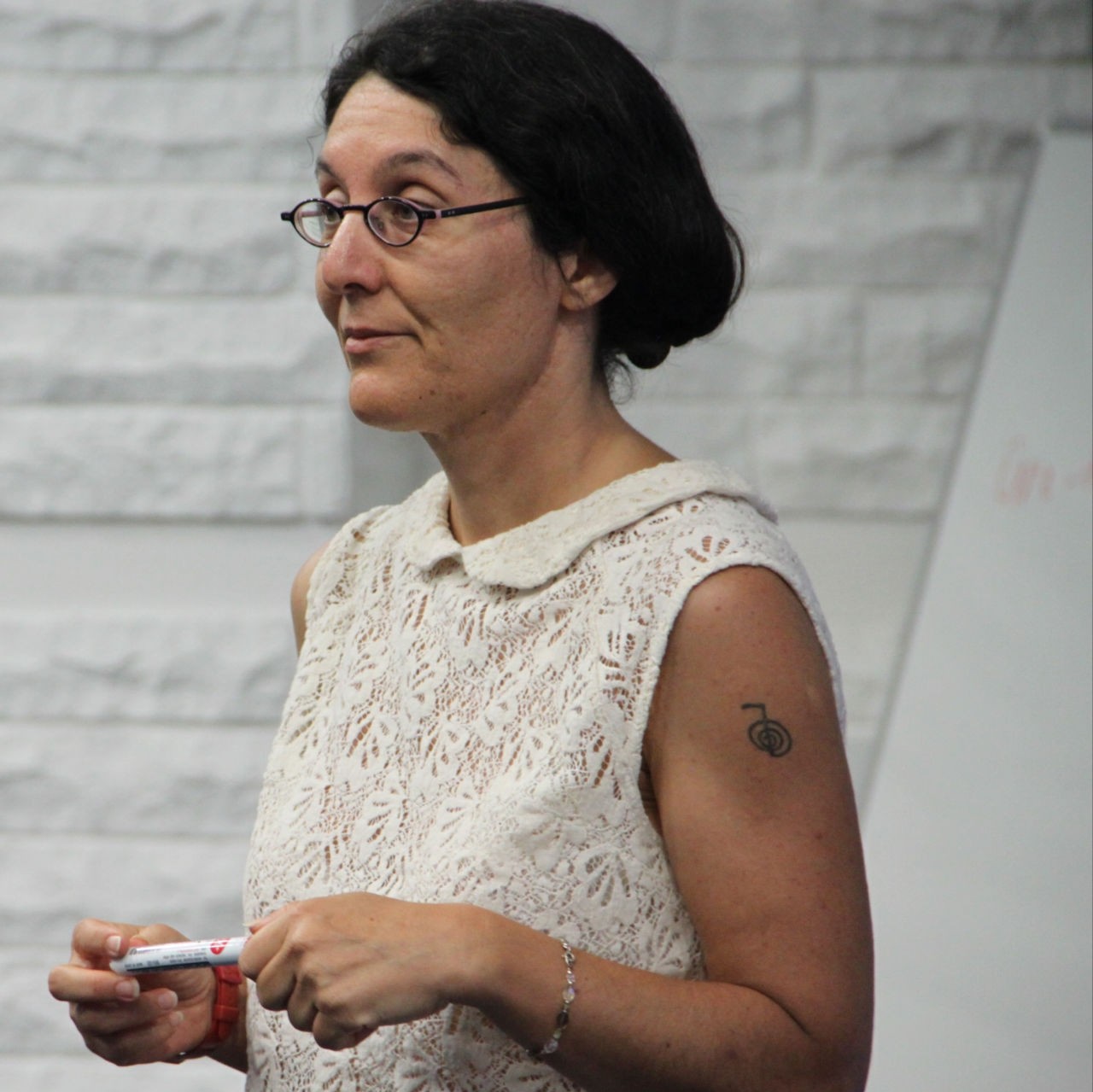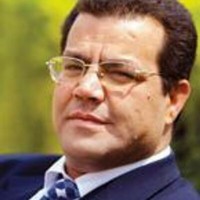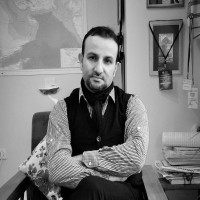Research Articles
Review Article
Book Review
Issue Editorial Board


Dr Tom Parkinson is Reader in Higher Education at the University of Kent, UK. His academic training and research span education, cultural studies, and music.



Paula Guerra is Associate Professor of Sociology at the University of Porto and Researcher at the Institute of Sociology of the same University. Paula is Adjunct Associate Professor of the Griffith Centre for Social and Cultural Research in Australia. She is founder/coordinator of the Network All the Arts: Luso-Afro-Brazilian Network of the Sociology of Culture and the Arts. Paula is the founder/coordinator of the KISMIF (kismifconference.com and kismifcommunity.com). Paula is member of the Board of the Research Network of Sociology of Art of ESA. She coordinates several research projects subordinated to the youth cultures, sociology of the arts and culture, co-creation, methodology and research techniques, DIY cultures, among other subjects. She has likewise advised and supervised several Masters, PhD and Post-Doc projects in the aforementioned areas. She is a member of the editorial council of several national and international journals, as well as editor and reviewer of several articles and books on a national and international level. Paula is editor-in-chief (with Andy Bennett) of SAGE journal DIY, Alternative Cultures and Society.



1969’da Kastamonu’nun Doğanyurt ilçesinde doğdu. İlk ve orta öğrenimini Kocaeli, İzmit’te tamamladı. 1988’de İzmit İmam Hatip Lisesi’nden mezun olduktan sonra İstanbul Üniversitesi Sosyoloji Bölümü’nde başladığı lisans öğrenimini 1992 yılında tamamladı. Aynı yıl yine İstanbul Üniversitesi Sosyal Bilimler Enstitüsü Sosyoloji Anabilim Dalı’nda Yüksek Lisans öğrenimine başladı. Buradaki öğrenimini de 1994’te “XIX. Yüzyıl Geçiş Dönemi Osmanlı Aydını” başlıklı teziyle tamamladı. 1993’te Sakarya Üniversitesi Sosyoloji Bölümü’nde araştırma görevlisi oldu. 1994’te başladığı doktora öğrenimini “Toplumsal Değişme Açısından Serveti Fünun Dönemi Türk Romanı” başlıklı teziyle Sakarya Üniversitesi Sosyal Bilimler Enstitüsü Sosyoloji Anabilim Dalı’nda 1998’de tamamladı. 2004’te aynı üniversitede yardımcı doçent, 2011’de doçent unvanını aldı. 2008-2010 yılları arasında ABD’de bulunan Wisconsin Üniversitesi’nde misafir araştırmacı olarak bulundu. 2016’da Sakarya Üniversitesi Sosyoloji Bölümü’ne profesör olarak atandı. Halen bölüm başkanlığı görevini yürüten Şan; edebiyat sosyolojisi, sosyal sermaye, çokkültürlülük, göç ve kimlikler sosyolojisi alanındaki çalışmalarını sürdürüyor. Çeşitli ulusal dergilerde çalışmalarını yayınlayan Şan, TUBİTAK gibi çeşitli kurumların desteğiyle çeşitli projelerin yürütücülüğünü üstlenmiş ve Kızılelma Yayıncılık’tan çıkan “Sosyoloji Yazıları I / Sakarya Üniversitesi Sosyoloji Bölümü Ortak Çalışması” Mahya Yayınları’ndan çıkan “Sosyal Bilimlerle Çağı Yorumlamak I-II-III” kitaplarının editörlüğünü yapmıştır. Ayrıca Pruva Yayınları’ndan basılan “Toplumsal Gerçeklik ve Roman” isimli bir kitabı bulunmaktadır. Şan, evli ve üç çocuk babasıdır.

Murat Şentürk, a sociologist of urban studies, is Associate Professor at Istanbul University. He received a Sociology MA [Life Strategies of the Indigent: The Districts of Küçük Mustafa Paşa and Balat (Istanbul) as Cases in Point] and a Ph.D. [Urban Intervention in The City of Istanbul] from Istanbul University, Department of Sociology. In 2013, he was Visiting Scholar at the City University of New York (USA) The Graduate Center (Center for Place Culture and Politics). In the 2022-2023 academic year, he carried out his research titled "Creating Inclusive and Resilient Communities in the City by Volunteering", supported by TÜBİTAK, as a visiting scholar at the University of Sydney the School of Geosciences. He is the director of the Center for Sociological Research, Urban Studies, and NGO and Social Responsibility MA Program. Volunteering Academy and Be Volunteer İstanbul in Istanbul University was established by Şentürk with his friends. Şentürk, who supports different NGOs and civil initiatives in the field of volunteering, is currently continuing his active volunteering activities as a board member at the 65+ Elder Rights Association and Turkish Green Crescent Society. Şentürk is the editor of the Volunteering and Working with Volunteers book and conducted the Turkey Volunteering Research. His research projects are supported by TÜBA, TÜBİTAK, and EU, and Şentürk's current research focuses on the relationship between local governments and volunteering. He is a member of the steering committee Marmara Urban Forum (Marmara Municipality Association), the science board of the City Thought Center (by Esenler Municipality), and a member of the jury of Urban Studies Awards (by Zeytinburnu Municipality).

Aim & Scope
• Literary criticism
• Audience studies
• Social production of everyday life
• The problem of ideology, domination, and hegemony
• Race studies
• Gender and representation
• Orientalism and occidentalism
• Feminist theory and women's studies
• Film studies
• Youth subcultures
• Postcolonial theory
• Critical Theory
• Media theories
• Popular culture
• Political Culture
• Strategic Culture
• Poststructuralism
• Subaltern studies
• Globalization and culture
• International communication and globalization
• Digital culture
• Intercultural communication
• New media studies
• Politics and class
• Migration studies
• Identity
Author Guidelines
2. If there is an institution that supports the study, (*) should be placed on the last word of the article title, and the supporting institution information should be stated as a footnote on the same page.
3. Submitted articles should be in the range of at least 6,000 and maximum 13,000 words, including references and appendices.
4. Articles should be arranged according to the APA 7 reference system. Make sure that the references used in the texts are compatible with the bibliography information.
5. Qualitative and quantitative studies that require data collection from participants using surveys, interviews, focus group studies, observation, interview techniques, and research on humans require an ethics committee approval. In the applications of studies requiring an ethics committee approval, the author/authors are required to submit the wet-signed ethics committee approval while uploading their articles to the system. Information about the ethics committee should be included in the method section of the article and the Article Information Form in the last section of the text, including the name, date, and number of the authorizing committee, and the statement that the article has been prepared in accordance with the decision of the ethics committee.
6. It is necessary to obtain permission from the owners in using scales, questionnaires and photographs belonging to others and to include this information in the studies. It is required to pay attention to the compliance with copyright regulations in the use of intellectual and artistic works and to make the necessary references in the texts.
Click here for the article writing template with 2 or more authors written in English.
Click for the book review template.
1- Book reviews should be between 2000-2500 words.
2- The book should be evaluated from a multi-faceted critical-critical perspective (by addressing the strengths and weaknesses of the book).
3- In the evaluation, the theses put forward by the author should be put forward and if the evaluator disagrees with the author's thesis, the reasons should be explained justifiably.
4- In the evaluations, the position-effect of the work in the field and its contribution to the field should be revealed.
5- Has there been a previous evaluation of the book? If so, these evaluations should be mentioned. If an evaluation has been made before, the original value of the work should be revealed.
6- The author should be introduced and his/her importance in the field should be emphasized.
7- The main discussion topics of the book and the dimensions of these discussions should be revealed.
8- The evaluation should be organized in such a way that the flow of the text is from general to specific.
Ethical Principles and Publication Policy
Media and Culture expects all its parties to take on the following ethical responsibilities as part of the publication ethics. The ethical duties and responsibilities listed below are based on the guidelines and policies published as open access by the Committee on Publication Ethics (COPE).
The publication of an article in a peer-reviewed journal is essential for the development of a coherent and respected knowledge network. Peer-reviewed articles support and develop scientific methods. Therefore, it is important for all relevant parties involved in the publishing process, including authors, journal editors, reviewers, and publishing agencies, to agree on the expected ethical behaviors and standards.
Authorship should be limited to those who have made a significant contribution to the conception, design, execution, or interpretation of the reported study. All those who have made significant contributions should be listed as co-authors. Where there are others who have participated in certain substantive aspects of the research project, they should be acknowledged or listed as contributors. The corresponding author should ensure that all appropriate co-authors and no inappropriate co-authors are included in the paper and that all co-authors have seen and approved the final version of the paper and have agreed to its submission for publication.
2. Conflicts of Interest:
Authors: All authors should disclose in their manuscript any financial or other substantive conflict of interest that might be construed to influence the results or interpretation of their manuscript. All sources of financial support for the project should be disclosed.
Reviewers: Referees should inform the journal editor about the evaluation process if they suspect any conflict of interest in the article they are evaluating, and refuse article evaluation if necessary. In order to prevent conflict of interest, people in the institutions where the article authors are working cannot referee the article.
Editors: Editors should not have personal or financial conflicts of interest with articles.
3. Data Access and Retention:
Authors are asked to provide the raw data in connection with a paper for editorial review, and should be prepared to provide public access to such data, if practicable, and should in any event be prepared to retain such data for a reasonable time after publication.
4. Data Fabrication and Falsification:
Fabrication and/or falsified experimental results, including the manipulation of images.
5. Duplicate / Multiple Submission(s):
Manuscripts that are either found to have been submitted elsewhere or published elsewhere. If authors have used their own work, either previously submitted or published, as the basis for a submitted manuscript, they are required to cite the previous work. They also need to indicate how novel contributions are offered in their submitted manuscript, over and above those of the previous work.
6. Intellectual Property
• Authors certify that their submitted manuscript (and any supporting items) are their own intellectual property and the copyright has not been transferred to others.
• Authors certify that the manuscript contains no plagiarism, no fabrication, no falsification, no manipulated citations and that the manuscript conforms to JSS authorship policies.
• All manuscripts, revisions, drafts, and galleys remain the intellectual property of the author(s). Except as stated in the agreed license, the author(s) retain the copyright to their work.
• Authors, reviewers, and editors agree to keep all communications, comments, or reports from reviewers or editors confidential.
• Reviewers and editors agree to keep all manuscripts, revisions, and drafts confidential, with the exception of the final published galley(s).
7. Correction, Retraction, Expression of Concern
• Editors may make corrections if they detect minor errors in the published article that do not affect the findings, interpretations, or results.
• Editors may retract the article in case of major errors/violations that invalidate the findings and results.
• Editors may issue a statement of concern if there is a possibility of abusive research or publication by the authors, if there is evidence that the findings are unreliable and the authors' institutions have not investigated the incident, or if the potential investigation seems unfair or inconclusive. The COPE guideline is taken into account with regard to the correction, retraction, and expression of concern.
8. Publication of Studies Based on Surveys and Interviews
Aiming to establish ethical assurance in scientific periodicals, Media and Culture journal adopts the principles of the "Code of Conduct and Best Practice Guidelines for Journal Editors" and the "Code of Conduct for Journal Publishers" published by the Committee on Publication Ethics (COPE). In this scope, the following aspects should be adhered in the studies submitted to the journal:
• Ethics committee approval should be obtained for research conducted in all the disciplines that require ethics committee approval, and this approval should be stated and documented in the article.
• In studies that require ethics committee approval, information about the approval (committee name, date and issue number) may be included in the method section of the study. However, in case reports, information about the informed consent and the signed consent form should be included in the Article Information Form at the end of the article.
The studies that require ethics committee approval are as follows:
• All kinds of research conducted with qualitative or quantitative approaches that require data collection from participants through surveys, interviews, focus group works, observations, experiments and other interview techniques.
• Use of humans and animals (including material/data) for experimental or other scientific purposes,
• Clinical studies conducted on humans,
• Studies conducted on animals,
• Retrospective studies in accordance with the law on the protection of personal data,
Also;
• A statement confirming that an "informed consent form" has been received in case reports,
• Obtaining permission from the owners for the use of scales, surveys or photographs belonging to others,
• A statement confirming that copyright regulations are met for the intellectual and artistic works used.
9. Policy of Publishing Additional or Special Issues
A special issue can be published in our journal once a year upon the request of the Editorial Board. The publication processes of the articles sent to be included in the special issue are the same as the standard processes.
1. Additional or Special issue: An issue published in addition to the regular issues of a periodically published journal. It may consist of conference papers or a series of articles focusing on a specific topic.
2. Page numbering in the additional or special issue is different from the regular issues.
3. The print run of the additional or special issue cannot be more than one third of the regular issue. The special issues containing conference paper abstracts are not included in this scope.
4. Ratios of case reports, compilations and research articles (excluding conference paper abstracts) published in the additional or special issue will be included in the ratios of articles published in other issues.
5. The issues published as a tribute are not accepted as an additional or special issue. Their page numbering and organization are the same as the regular issues.
Actions that violate scientific research and publication ethics are as follows:
Plagiarism: Showing others' original ideas, methods, data or works as their own work, partially or completely, without reference to scientific rules,
Forgery: Using data that does not actually exist or has been falsified in scientific research,
Distortion: Falsifying the research records or data obtained, displaying the equipment or materials not used in the research as if used, distorting or shaping the results of the research in the interests of the people and organizations that provide support,
Republishing: Presenting repetitive publications as separate publications in academic appointments and promotions,
Slicing: Dividing the results of a research into pieces in an improper way or in a way that disrupts the integrity of the research and publishing each one separately to increase total publication count for academic appointments and promotions,
Unfair Authorship: Including non-contributors in the author list or not including those who have contributed, changing the author's order in an unjustified and inappropriate manner, removing the names of contributors from the work in subsequent editions, using influence to include names among the authors despite not being contributors,
Other ethical violations include:
a) Not specifying the supporting individuals, institutions or organizations and their contributions in the publications made as a result of research conducted with support.
b) Using theses or studies that have not yet been submitted or have not been accepted as a source without the permission of the owner,
c) Not complying with ethical rules in research on humans and animals, not respecting patients' rights in publications,
ç) Violating the provisions of the relevant legislation in biomedical research and other clinical research related to humans,
d) Sharing the information in a work that has been assigned for review with others before it is published without the explicit consent of the author,
e) Misusing resources, spaces, facilities and equipment provided or allocated for scientific research,
f) Deliberately making a false and ungrounded allegation about ethical violation,
g) Publishing the data obtained from surveys conducted as part of a scientific study without the explicit consent of the participants, or without the permission of the relevant institution if the study is conducted in an institution,
h) Harming animal health and ecological balance in research and experiments,
ı) Failing to obtain written permissions from authorities that are required for starting research activities or experiments,
i) Conducting research activities or experiments in violation of the related legislation or the provisions on research and experiments in the international conventions to which Turkey is a party,
j) Disregarding the obligation to inform and warn the relevant authorities about possible harmful practices related to the scientific research.
k) Not using the data and information obtained from other individuals or institutions in scientific studies to the extent and as permitted, not respecting the confidentiality of this information and not ensuring its protection,
l) Making false or misleading statements regarding scientific research and publications in academic appointments and promotions.
• It must be ensured that all the persons mentioned as authors/co-authors have contributed to the article. It is against scientific ethics to show persons who have not made any academic contribution as additional authors or to rank the authors by non-scientific criteria such as title, age and gender, regardless of the order of contribution.
• In the articles with multiple authors, it should be clearly stated to what extent the authors have contributed to which stage of the article.
• The article should not be sent to different journals at the same time and should not have been sent to another journal before. If it is found to have been sent to another journal, the publication process will be cancelled.
• It is assumed that the authors who submit articles to the journal have read and accepted the publication and writing principles of the journal, and the authors are deemed to have committed to these principles.
• The citations and bibliography should be complete.
• Plagiarism and fake data should be avoided.
• The similarity rate obtained as a result of the similarity checks should not exceed 15% in order to initiate the peer review process.
• An article may be included in a maximum of 2 PRE-REVIEW processes. The article will be rejected if the feedback conveyed to the author is not revised.
•Authors should not resubmit the same studies previously rejected in our journal. In such a case, the studies will be rejected.
• The corresponding author must inform the journal editor in case of any conflict of interest.
This issue can be referred to WAME.
• Peer reviewers should only accept to review articles for which they have the expertise to make an appropriate assessment. They should also respect the confidentiality of the blind peer review process and keep the details of the article confidential at all costs.
• After the review process, any information about the reviewed article should not be shared with others under any circumstances.
• Peer reviewers should only evaluate the accuracy of the content of the articles and their compliance with academic criteria. Any difference of opinions between the article's argument and the peer reviewer should not affect the review process.
• Peer review reports should be objective and measurable. Libelous, derogatory or accusatory expressions should definitely be avoided.
• Peer reviewers should avoid superficial or inaccurate statements in their peer review reports. In reviews with negative results, a complete justification should be presented on the aspects that led to the negative result.
• Peer reviewers should review the articles within the time period allotted to them. If they are not going to review the article, they should notify the journal within a reasonable time.
• Editors should not have any conflict of interest with accepted or rejected articles.
• Editors have full responsibility and authority to accept or reject an article.
• It is editors' responsibility to keep the names of peer reviewers and authors mutually confidential.
• Only the articles that will contribute to the relevant field should be accepted.
• If an error is detected, editors should support the correction or retraction of the error.
• It is the duty of editors to complete the pre-review, peer review, editing and publishing processes of the articles submitted to the journal in a timely and appropriate manner.
• Editors should not assign people who do not contribute to the journal as editorial board members or associate editors.
Media and Culture handles complaints and appeals by following the below procedure. Complaints including but not limited to the long delays in handling studies and publication ethics initially are handled by the Editor-in-Chief of Communication . The Editor-in-Chief examines complaints and appeals together with Area Editors and Editorial Board if applicable. If anything occurs about complaints and appeals please contact medyavekultur@sakarya.edu.tr
The Editor -in-Chief examines the complaints of the author(s), and the reports of reviewers and make a decision about:
- The confirmation of the rejection of the paper,
- The appeal of the author should be considered,
- A fresh opinion from an independent reviewer is needed.
The final decision of the Editor-in-Chief is notified to the author(s). The explanation of the consequences of the appeal is shared with the author(s) if necessary. This is the final decision of Media and Culture .
Complaints about Processes
The complaints about processes are handled by the Editor-in-Chief. Long delays in handling studies are examined by editors of Media and Culture and any necessary issues are shared with the Editor-in-Chief. The Editor-in-Chief evaluates the complaints, and when necessary, information is shared with the authors.
The Editor-in-Chief considers complaints about publication ethics of the author’s or reviewer’s conduct. The Editor-in-Chief follows the publication ethics which are published on the Media and Culture website. The editorial board of Media anad Culture examines the concern of complainants or reviewers. The details and progress of the examination are shared with the complainant(s) clearly. The Editor-in-Chief or Assistant Editors provide feedback to the complainant(s) on the manner of action and the final decision.
Privacy Statement
The private information that is held in the administration system of Media and Culture will not be shared with any third party and will only be used in accordance with the scientific purposes of this journal and Media and Culture. The corresponding author is responsible for ensuring that the article has been seen and approved by all the other authors.
The average time during which the preliminary assessment of manuscripts is conducted: 3-7
The average time during which the reviews of manuscripts are conducted: 60
The average time in which the article is published: 90
Price Policy
• Media and Culture does not request any fees for article submission, reviewing and editing processes, page-layout and publication (page or color fees).
• Media and Culture does not pay any fees to authors, reviewers, editors and editorial board members.
• All papers on Media and Culture are free to read and download.
• Media and Culture sign on to the Budapest Open Access Initiative (BOAI), which promotes free access to research literature, and has adopted the Open Access Principles that clarified in this initiative.
• All papers on Media and Culture are archived with LOCKSS (Lots Of Copies Keep Stuff Safe) system through TÜBİTAK ULAKBİM DergiPark.
• Media and Culture does not accept announcements, advertisements, sponsorships, etc. due to its publication policy.
• Media and Culture is an open-access journal which does not request any subscription fees.
• We do not offer a reprint service for those requiring professional quality reproductions of papers
* All expenses of the Media and Culture journal are covered by Sakarya University.
INDEXING & ABSTRACTING & ARCHIVING
This journal is licensed under a Creative Commons Attribution-NonCommercial 4.0 International License.







